Trellised vines snake their way up to a literal glass ceiling inside one of several greenhouses, each constructed differently and yet all tricked out with the same state-of-the-art technology.
This little agricultural park is right in the center of Netafim’s research and development site in Kibbutz Magal, just under an hour’s drive north of Tel Aviv, and is a prime example of what technological advances in modern agriculture have made possible even in the midst of winter. The company, known for pioneering drip irrigation and a method called precision irrigation, is now a multinational corporation worth billions of dollars and majority-owned by Mexican conglomerate Orbia (formerly Mexichem).
SEE ALSO: Netafim, BGU, Bayer To Collaborate On Drip Irrigation Systems
However, Netafim has humble beginnings, starting with the invention of the first drip irrigation system by Simcha Blass in 1959, in Kibbutz Hatzerim, the entity that patented the product. Drip irrigation delivers water, fertilizers, and crop protection including biologicals directly to the roots of the crops, enabling farmers to apply these products in a more targeted way using Netafim’s technology.
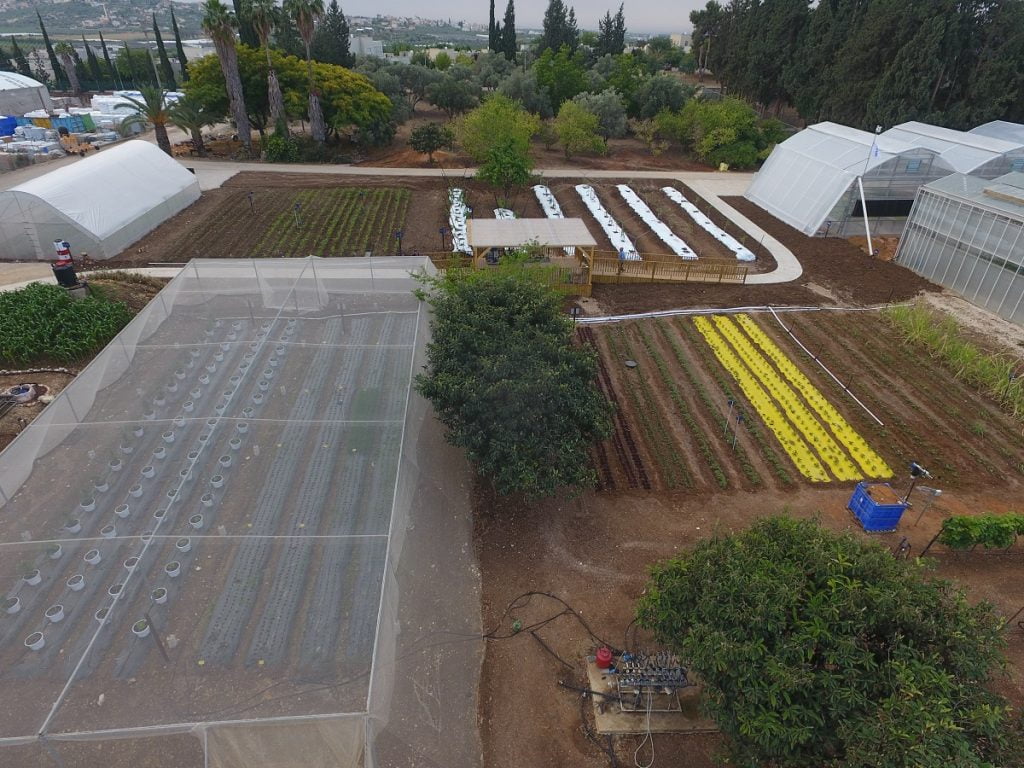
The company itself was founded in 1965, and a couple of acquisitions, 13 trademarks and just under 250 patents later, the kibbutz maintains a 20 percent share of Netafim.
Today, Netafim says it delivers innovative agriculture tech solutions to millions of farmers in over 100 countries, from smallholders to large-scale agricultural producers. Its services include precision irrigation solutions with expert agronomic, technical and operational support from Netafim, as well as digital farming offerings with integrated monitoring, analysis, and automation.
Overall, the company is one of the greatest success stories in Israeli high-tech innovation and, over 50 years later, it is just getting started. According to Lior Peleg, Corporate Marketing Director at Netafim, the company has progressed to address the needs of a fast-growing agricultural industry that is consistently finding new ways to incorporate technology in every step of the growing process, from seed selection to nutrient micro-dosing and crop yields.
“We’ve been doing monitoring and control forever…but analysis, allowing a closed-loop [system], that’s never been done before,” Peleg tells NoCamels in an on-site interview.
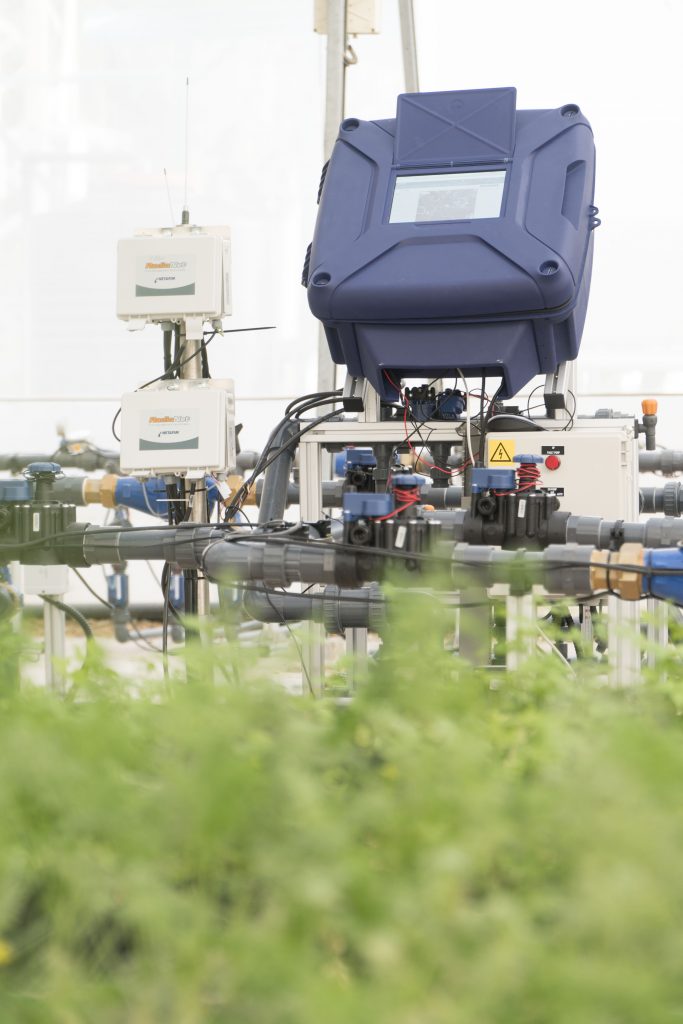
After manufacturing and selling patented smart farming equipment like drip irrigation systems, pipes, valves and sensors that have been developed over the years, Netafim released NetBeatTM in 2018, an all-in-one solution for its customers. The product consists of both physical elements, like sensors and routers, and non-physical elements like cloud-based software that allows farmers to control their operations remotely and act in real-time.
NetBeat allows for a closed-loop system, giving farmers access to detailed data that is gathered from sensors in the fields and greenhouses and fed into the cloud. Farmers can then make actionable decisions from their smartphones without having to go back to their offices to access the software.
Additional data aggregated by Netafim’s agronomists and partner organizations is fed into the data cycle, helping farmers decide on best practices for dynamic crop modeling provided by NetBeat’s proprietary software. So far, the company says it has installed 160 NetBeat systems that manage approximately 50,000 hectares (123,550 acres) of agricultural land fitted with custom precision irrigation equipment, an impressive feat given that the product has only been on the market for just under two years.
“The interface is [designed] according to today’s user, and it’s also thinking about the farmer,” Peleg explains. We have years of experience and we understand how farmers manage their farms, so we pooled all of our insight when designing the interface.”
According to Peleg, there are two main barriers to farmers adopting “new” technologies like drip irrigation, or even a more advanced system like NetBeat. The first is a financial barrier, and the second is the fear of adopting new technologies. The latter is solved with a seamless user experience and ongoing support from the Netafim agronomy team, and the former can sometimes be alleviated by government subsidies awarded in the interest of water preservation and increasing crop yields to provide food security for growing populations.
Sign up for our free weekly newsletter
Subscribe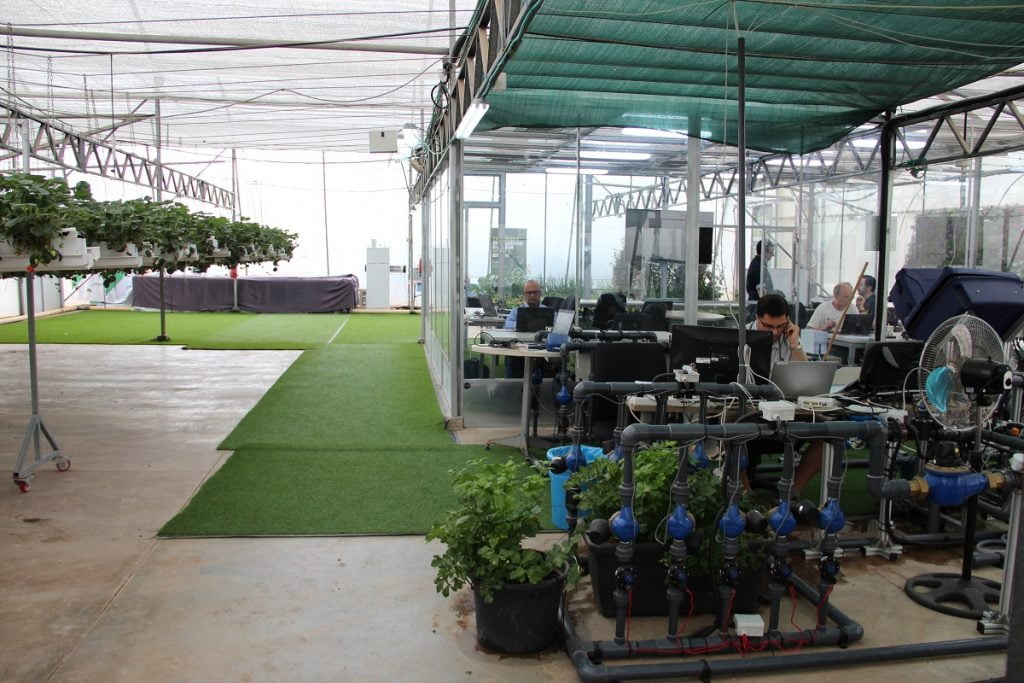
There are legitimate arguments to be made in favor of embracing drip irrigation systems that go beyond the ease of control they offer farmers, such as the impact on the world’s water supply. Approximately 40-50 percent less water is used in farms equipped with precision or drip irrigation systems and, in countries like Israel where water is scarce and thus an expensive resource, that point alone could be a determining factor for whether or not a farm is profitable.
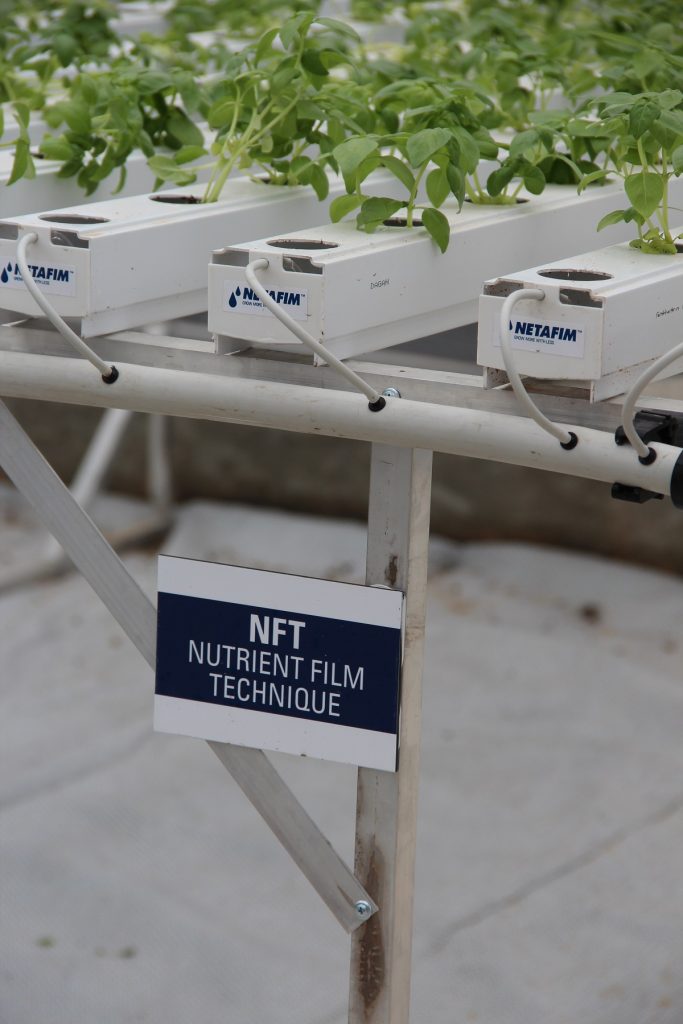
Currently, 85 percent of Israeli farms with irrigated land utilize drip irrigation systems specifically, and the remaining 15 percent have implemented some kind of precision irrigation technique like sprinklers, according to internal research by Netafim which looks at data from the Israeli Agriculture Ministry.
The Israeli government, alongside others like Morocco, have incentivized local farmers to implement approaches rooted in water conservancy due to long-lasting droughts and the effects of climate change. After Israel, California has the largest concentration of drip irrigation systems which account for 30 percent of the farmland in the state.
Although Netafim’s revenue increased to $1 billion by the end of 2018 and is considered an industry leader, the market remains largely untapped and leaves room for tremendous growth.
The less talked about recent developments at Netafim, however, are not purely based on technology. According to Peleg, new technologies like NetBeat’s cloud-based software are what consistently make the news, but Netafim’s most valuable service is the support it offers to its clients, and the communities it fosters around farming on a global level.
The company’s most recent initiative, Ramthal, has led to a partnership with the Indian state of Karnataka, whose government is subsidizing 100 percent of all drip irrigation projects and implementing Netafim’s technology in a region challenged by food scarcity and access to fresh water. Since 2017 when it first launched the project has already reached some 7,500 farmers in the Karnataka state alone.
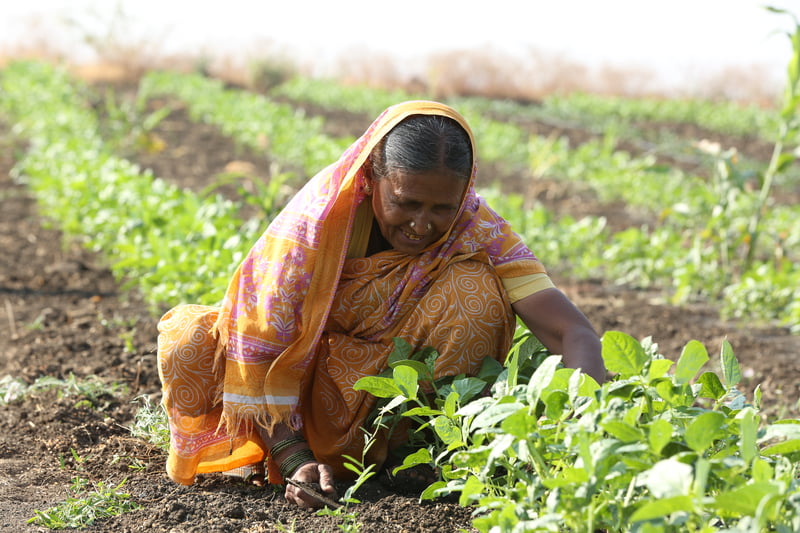
SEE ALSO: Irrigation Company Netafim To Provide Water Solutions To 60,000 Farmers In India
In 2019, Netafim announced that it would be further deploying its precision irrigation technologies in India’s Singataluru, Ananthapuramu District and Tarikere regions, spanning some 100 villages and impacting nearly 60,000 rural farmers.
Groups of between 5,000-10,000 smallholder farmers were formed to create micro-farming communities that are led by locals, trained by Netafim’s agronomists for five years on system maintenance and ideal crop performance.
“The community irrigation model is enabling us, together with local governments to impact the livelihood of thousands of farmers with our most advanced precision irrigation and digital farming solutions,” said Netafim president and CEO Ran Maidan, at the time, adding that India was a “key market for Netafim in fulfillment of its commitment to help the world to grow more with less.”
Netafim has plans to expand the program based on its initial success.
Peleg tells NoCamels that the impact of empowerment is priceless and that these new endeavors are sure to create an environmentally friendly approach to food production and resource conservation for farming communities worldwide.
Related posts

Editors’ & Readers’ Choice: 10 Favorite NoCamels Articles

Forward Facing: What Does The Future Hold For Israeli High-Tech?

Impact Innovation: Israeli Startups That Could Shape Our Future


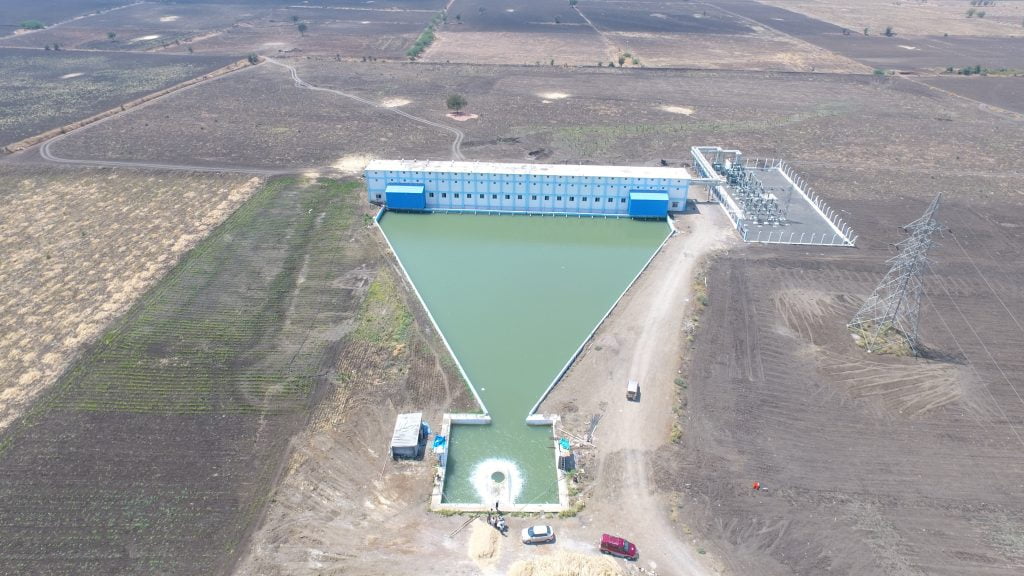

Facebook comments